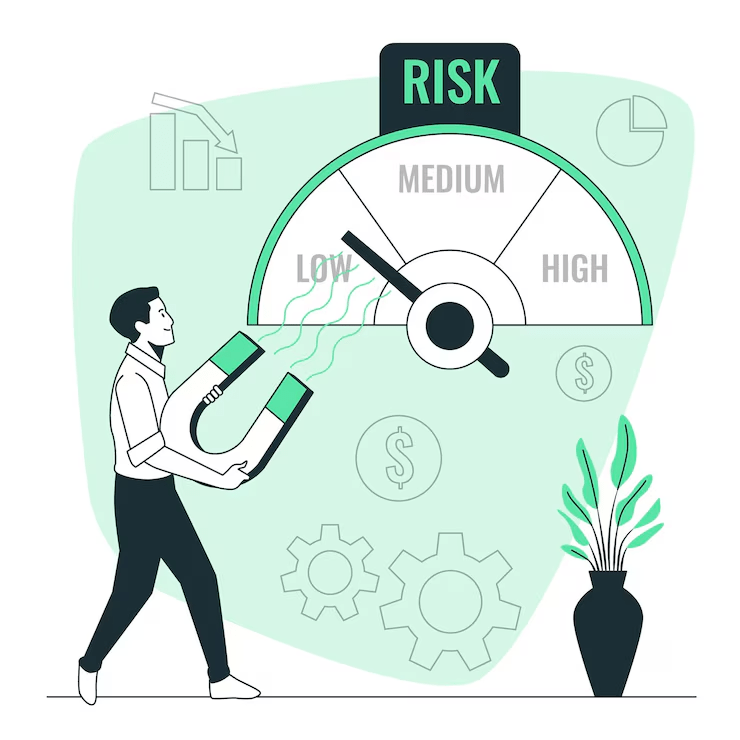High-risk payment processing involves managing transactions for businesses deemed to have a higher likelihood of fraud, chargebacks, or regulatory issues. Payment processors classify these businesses as high-risk based on factors like industry, transaction volume, business model, and history of chargebacks or fraud.
Characteristics of High Risk Payment Processing
Industry Type: Certain industries are naturally considered high-risk. Examples include:
- Adult entertainment
- Online gambling
- CBD and cannabis products
- Travel agencies
- Subscription services
- E-cigarettes and vape products
- Debt collection agencies
- High Chargeback Rates: Businesses frequently facing chargebacks, where customers dispute charges on their credit cards, are seen as high-risk.
- High Transaction Volume: Companies with a large number of transactions may be considered high-risk because the chances of fraudulent activity or chargebacks increase with volume.
- International Sales: Businesses with significant international sales might be categorized as high-risk due to the complexities and risks of cross-border transactions.
- Regulatory and Legal Concerns: Industries with strict regulatory requirements or legal uncertainties, such as CBD and gambling, are often high-risk.
- Startup Businesses: New businesses without a proven track record may be classified as high-risk as payment processors cannot accurately assess their risk profile.
Features of High Risk Payment Processors
- Higher Fees: These processors generally charge higher transaction fees to offset their risk exposure, including higher percentages per transaction and additional monthly fees.
- Rolling Reserves: A portion of the transaction amount is held in reserve for a specified period to cover potential chargebacks or disputes.
- Specialized Fraud Prevention: Enhanced fraud detection and prevention tools are offered to manage and reduce risk.
- Chargeback Protection: Services to help manage and contest chargebacks are often provided.
- Customized Solutions: Tailored payment solutions to meet the specific needs of high-risk industries, including support for multiple payment methods and currencies.
Benefits and Challenges
Benefits:
- Access to Payment Processing: Allows businesses in high-risk industries to accept credit card payments, which is vital for their operations.
- Specialized Support: Provides tools and expertise to manage the unique risks associated with high-risk businesses.
Challenges:
- Cost: Higher processing fees and reserve requirements can affect profitability.
- Approval Process: More stringent application and approval processes can make it difficult for businesses to get approved.
- Ongoing Scrutiny: High-risk merchants may be subject to continuous monitoring and stricter compliance requirements.
In summary, high-risk payment processing is crucial for businesses in specific industries to operate smoothly. Despite higher costs and stricter requirements, it offers necessary support and protection for both the payment processor and the merchant against increased risks.
List of the best High-risk payment processing providers
How to choose a high-risk payment processor?
Choosing a high-risk payment processor requires careful consideration of several factors to ensure you select a provider that best meets your business needs while effectively managing the associated risks. Here are the key steps to guide your decision:
Understand Your Business Needs
- Industry Specialization: Ensure the processor has experience with your specific industry. Some processors specialize in particular high-risk sectors and offer tailored solutions.
- Transaction Volume: Choose a processor that can handle your expected transaction volume without issues.
Payment Methods: Consider the variety of payment methods you need (e.g., credit cards, debit cards, ACH, e-wallets) and ensure the processor supports
Evaluate Security Measures
- Fraud Prevention Tools: Look for processors offering advanced fraud detection and prevention tools, such as AI-driven analytics, address verification services (AVS), and card verification value (CVV) checks.
- PCI Compliance: Ensure the processor complies with the Payment Card Industry Data Security Standard (PCI DSS) to protect cardholder data.
Check for Transparent Pricing
- Fee Structure: Understand the fee structure, including transaction fees, monthly fees, chargeback fees, and any hidden costs.
- Rolling Reserves: Ask about rolling reserve policies, which are funds held back to cover potential chargebacks. Understand the percentage withheld and the duration of the reserve period.
Assess Chargeback Management
- Chargeback Protection: Look for services that help manage and dispute chargebacks effectively.
- Chargeback Ratio Policies: Understand the processor’s policies regarding acceptable chargeback ratios to avoid account termination.
Review Contract Terms
- Contract Length: Be aware of the contract length and the terms for early termination.
- Flexibility: Check if the contract terms are flexible and if there are options to renegotiate terms based on your business’s performance.
Integration and Technology
- Integration: Verify that the processor can seamlessly integrate with your existing e-commerce platform, shopping cart, or point-of-sale system.
- Technology: Ensure the processor offers a user-friendly dashboard and reporting tools to monitor transactions, chargebacks, and other metrics.
Reputation and Reviews
- Reputation: Research the processor’s reputation in the industry. Look for reviews, testimonials, and any history of regulatory issues or complaints.
- Reliability: Choose a processor with a proven track record of reliability and stability.
Legal and Regulatory Compliance
- Regulatory Knowledge: Choose a processor knowledgeable about the regulatory landscape of your industry and capable of ensuring compliance with relevant laws and regulations.
Conclusion
Selecting the right high-risk payment processor involves a thorough evaluation of your business needs, understanding the processor’s capabilities and terms, and ensuring they can provide robust security and support. By considering these factors, you can choose a processor that helps your business manage risks effectively while facilitating smooth and secure payment processing.












